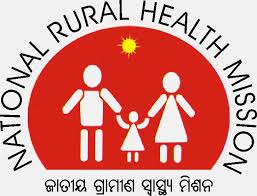 A total of Rs 553.00 crores was given to the States / UTs for mainstreaming of AYUSH under National Rural Health Mission during 2009-13. This resulted in the establishment of new AYUSH facilities in 803 Primary Health Centres, 113 Community Health Centres, 24 District Hospitals and up-gradation of 379 exclusive AYUSH hospitals and 415 Dispensaries in the country. Shri Ghulam Nabi Azad, Union Minister of Health & Family Welfare said this at Kolkata today.
A total of Rs 553.00 crores was given to the States / UTs for mainstreaming of AYUSH under National Rural Health Mission during 2009-13. This resulted in the establishment of new AYUSH facilities in 803 Primary Health Centres, 113 Community Health Centres, 24 District Hospitals and up-gradation of 379 exclusive AYUSH hospitals and 415 Dispensaries in the country. Shri Ghulam Nabi Azad, Union Minister of Health & Family Welfare said this at Kolkata today.
Addressing the Inaugural function of Dr. Prasanta Banerji Homeopathic Research Foundation and Launch of Book on Banerji Protocols, Shri Azad said mainstreaming of AYUSH has been one of the important strategies envisaged under the NRHM. Accordingly, the Department of AYUSH supported the setting up of six 50 bedded Integrated AYUSH Hospitals in Mizoram, Manipur, Tripura, Himachal Pradesh, Jammu & Kashmir and Uttarakhand and five 10 bedded Integrated AYUSH hospitals in Assam, Arunachal Pradesh, Meghalaya, Nagaland and Sikkim. Altogether 11,478 AYUSH doctors and 4,894 AYUSH para-medics have been appointed on contract basis at Primary Health Centres and Community Health Centres under NRHM across the country. It has also implemented various schemes in the eleventh plan for development of all the four core areas of education, research, drug development and healthcare delivery. Homoeopathy has also been benefitted tremendously from these schemes, especially the Schemes on Centre of Excellence, Public Health Initiative and Extra mural research. There is peaceful co-existence of Allopathy with Ayurveda and Siddha in the country now. All these medical systems are being utilized in the national healthcare delivery system, each to its potential and availability in different parts of the country. Homoeopathy is now well assimilated into the ethos of Indian heritage and is widely accepted by the public for many of their healthcare requirements.
Shri Azad said since the launch of the National Rural Health Mission in 2005, substantial progress has been achieved in the health sector. Over 8 lakh 60 thousand Community Health Workers called ASHAs have been appointed in villages to facilitate interface between the communities and health system. Under Janani Surakhsa Yojana (JSY), complemented by Janani Shishu Suraksha Karyakram (JSSK), institutional deliveries have seen a quantum jump, leading to unprecedented increase in the institutional deliveries from 7 lakhs in 2005-06 to nearly One Crore and Ten lakhs in the past two years. To cater to the increased demand, more than 25,000 additional beds have been sanctioned across 415 health facilities in 11 States. There has been tremendous improvement in the referral transport and out-reach services through over 18,000 Mobile Medical Units and Ambulances. A name, address and telephone based Mother and Child Tracking System (MCTS) has been put in place to reach out to every pregnant woman for proper care during pregnancy and to every child for proper vaccination. Data of more than 4.3 crore women and 3.5 crore children has been captured as of 7the June, 2013. A latest initiative is the “Rashtriya Bal Swasthya Karyakram”, which was launched on 6th February, 2013 from a tribal block of Thane District in Maharashtra. This national programme is for Universal Screening of Children for Disorders, Diseases, Deficiencies and Disabilities from birth up to 18 years and will cover about 27 crore children across the country, including 17 crore school going children.
Speaking about Dr. Prasanta Banerji Homeopathic Research Foundation, Shri Azad said the book on “Banerji Protocols” is the result of the efforts of Dr. Prasanta Banerji who has been in practice for over 55 years and his son, Dr. Pratip Banerji who has been working with him for 22 years now. The book is about using homeopathic medicines in a scientifically acceptable way, where diseases are diagnosed in the same way as Allopathy but the medicines are prescribed in fixed protocols for every disease. The purpose of the book is to make available, to a healthcare professional knowledge gathered by the experience of over 70 years of using Homeopathy and the Banerji Protocols cover general diseases as well as some types of cancer. The father-son duo deserves commendation for the fact that while the clinic patient footfall is 1,200 patients a day, over 700 patients are treated free of charge every day. The Foundation also sees about 150 to 200 cancer cases a day. It has also entered into research collaborations with many institutions of international repute to achieve standardised treatment protocols, which allow replicability in the treatment of patients suffering from the same disease with the same fixed protocol of medicine.
